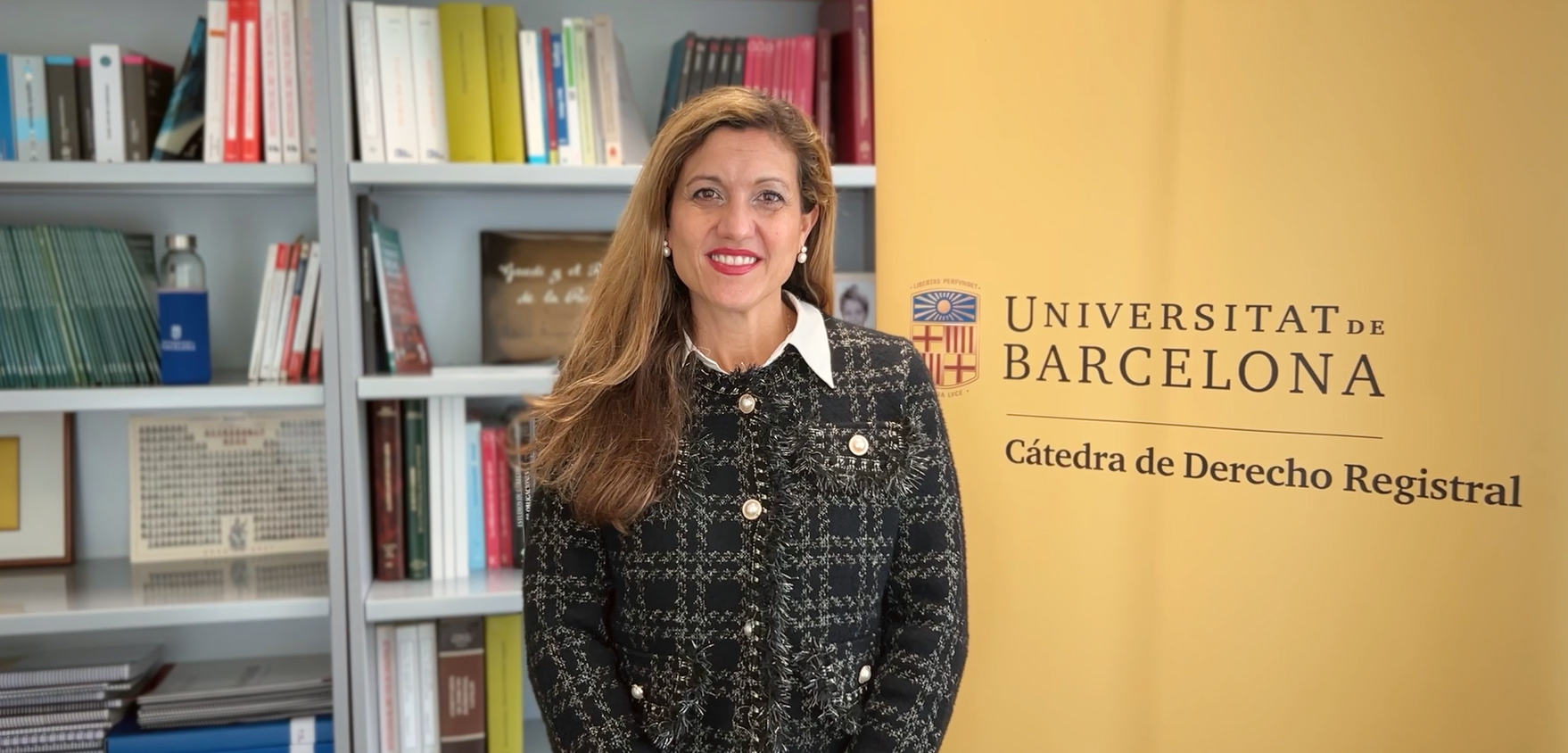
“Transferring enriches teaching and allows for better guidance of research”
We interviewed Dr. Chantal Moll, Professor of Civil Law at the Faculty of Law of the University of Barcelona (UB) and Director of the Chair in Registry Law at the UB. We spoke to her about the importance of transferring the knowledge generated at the university, especially in the field of law.
Why is it important to transfer the knowledge generated at the university?
In order to be able to train students, professors must be constantly studying. In my subject, such as law, we have legislative changes all the time and this forces us to keep up to date. This privileged knowledge generated at the university cannot remain behind closed doors and only serve for students’ degrees, but should benefit society as a whole. In my opinion, the university should not only be a centre for issuing qualifications, but a beacon of knowledge open to society as a whole.
Transfer has a motivational component for teachers. It is very gratifying to know that your work not only serves to train students, but also to help other people who have real problems. In my case, knowledge transfer has improved my teaching, and has allowed me to better focus my academic research.
Is it difficult to transfer in the field of law?
I think that many law professors are not aware of the possibilities of making a transfer. I found out about it thanks to a colleague at the faculty who told me about the Fundació Bosch i Gimpera. The transfer is a very important and interesting work both for teachers and for the university and students.
What advantages and benefits does the transfer have for the teaching and research staff of the University?
The transfer has great benefits for teachers: on the one hand, it allows us to improve our teaching and we can explain the theory and the practical consequences. It also allows us to focus our research because we are more aware of what concerns society and where research is needed.
What specific influence has the transfer had on your academic activity?
Thanks to the various transfer projects, I have had the opportunity to study real cases in all their complexity. On the one hand, I have been able to help many people by transferring my technical knowledge to solve the case. On the other hand, I have received many inputs from these people that have allowed me to better understand the problem and to see that I could not apply my knowledge alone, but that I needed the interaction of other experts in different branches of law or disciplines to give the right solution.
Would you recommend other researchers to spend time on transfer?
Definitely. For a long time, transfer has been seen as a secondary activity, as if it detracted from the purity of academic research. But, precisely, at least in the field of social sciences, we must be close to social reality, and transfer allows us to be close to that reality. In Law, our function is to improve the rules in order to avoid difficulties and correct unjust situations, and we can only detect these problems if we get involved in the transfer.
What transfer projects have you developed with the Bosch i Gimpera Foundation?
I have a long-standing relationship with the Bosch i Gimpera Foundation, and together we have developed innovative projects. In 1996, we created the CIDDRIM (Centre for Research and Development of Real Estate and Commercial Registry Law) and in 2010 an advisory service on Catalan civil law. Now, since 2023, I have the honour of directing the Chair of Registry Law, which reports to the Vice-Rectorate for Transfer.
How do you assess the impact of the creation of the UB Chair in Registry Law?
The UB Chair in Registry Law was created thanks to the sponsorship of the Registry Foundation and the initiative of the Regional Dean’s Office of the College of Registrars of Catalonia, and is attached to the Faculty of Law. All the agents involved are very happy. We are carrying out research and dissemination activities in the field of real estate and housing, and we have the collaboration of different departments of the UB, other universities and many entities, such as the Barcelona Bar Association, the Association of Property Administrators, the Association of Property Agents and the Chamber of Property.
More about… Chantal Moll
The best invention ever?
The book.
What would you like to see in the future?
I would very much like to have the opportunity to see all the students I have had over the years and see how they are doing. Sometimes I meet them and it makes me very excited. It would be great to organise a meeting of former students and see all of us.
A future development that scares you?
Fear is not a good attitude; it is better to make the most of the positive side of every advance.
A reference?
My parents, uncles and grandparents.
What could be done to achieve equality between men and women?
Treat and respect everyone as a person, regardless of whether they are male or female.
Transfer is important for…
For research, for teaching, for the motivation of the teacher and for the return to society.

